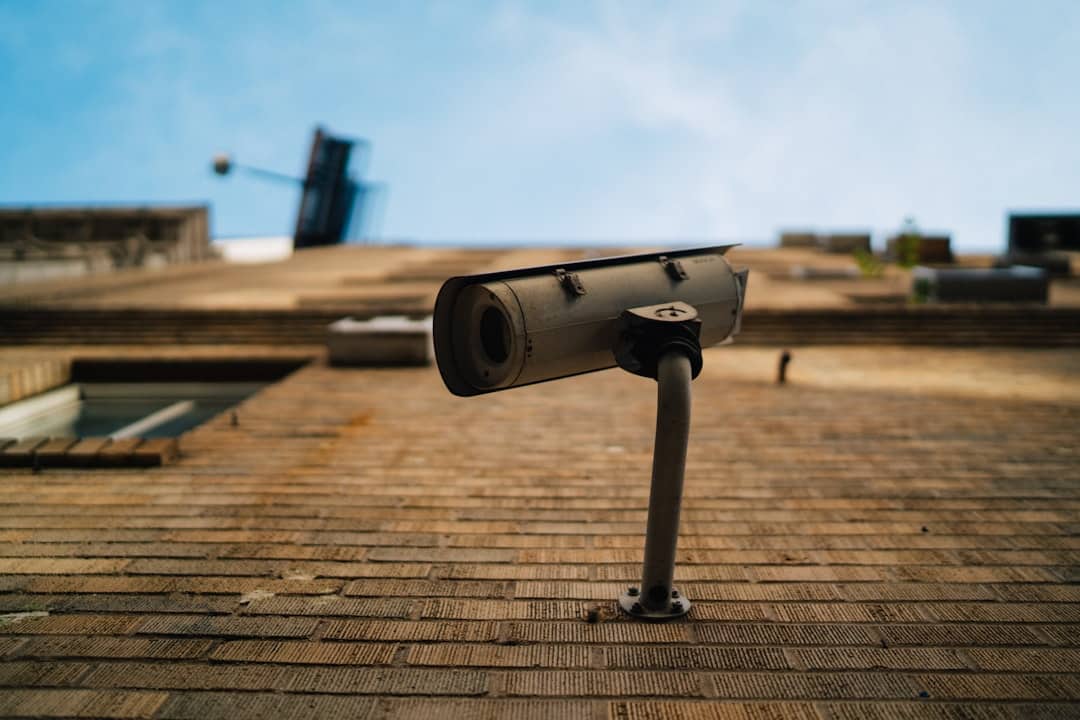Biometric privacy laws have emerged as a critical area of legal and ethical consideration in the digital age, where the proliferation of biometric technologies has transformed how individuals interact with devices and services. These laws are designed to protect personal biometric data, which includes unique identifiers such as fingerprints, facial recognition patterns, iris scans, and voiceprints. As organizations increasingly adopt biometric systems for authentication and security purposes, the need for robust legal frameworks to safeguard individuals’ privacy rights has become paramount.
The rise of biometric data collection has raised significant concerns about consent, data security, and the potential for misuse, prompting lawmakers to establish regulations that govern the collection, storage, and use of such sensitive information. The legal landscape surrounding biometric privacy is complex and varies significantly across jurisdictions. In the United States, for instance, states like Illinois have enacted specific laws such as the Biometric Information Privacy Act (BIPA), which imposes strict requirements on companies that collect biometric data.
This act mandates informed consent from individuals before their biometric information can be collected and requires organizations to implement reasonable security measures to protect this data. In contrast, other regions, such as the European Union, have integrated biometric data protection into broader data protection regulations like the General Data Protection Regulation (GDPR), which provides comprehensive guidelines on personal data processing, including biometric information. As these laws evolve, they reflect a growing recognition of the need to balance technological advancement with individual privacy rights.
Key Takeaways
- Biometric privacy laws are designed to protect individuals’ biometric data from unauthorized access and use.
- Biometric privacy laws have a significant impact on device security, as they require companies to implement strong security measures to protect biometric data.
- Compliance with biometric privacy laws is essential for companies to avoid legal and financial repercussions.
- Biometric data protection measures include encryption, secure storage, and strict access controls to prevent unauthorized use or access.
- Challenges and controversies surrounding biometric privacy laws include concerns about data breaches, potential misuse of biometric data, and the need for clear regulations and enforcement.
The Impact of Biometric Privacy Laws on Device Security
The implementation of biometric privacy laws has a profound impact on device security, influencing how manufacturers design and deploy biometric systems. By mandating strict compliance with privacy regulations, these laws compel organizations to adopt more secure practices when handling biometric data. For instance, companies must ensure that biometric information is encrypted both in transit and at rest, reducing the risk of unauthorized access or data breaches.
This heightened focus on security not only protects individuals’ sensitive information but also enhances the overall integrity of the devices that utilize biometric authentication methods. Moreover, biometric privacy laws encourage organizations to conduct regular audits and assessments of their data handling practices. This proactive approach to security helps identify vulnerabilities within biometric systems and fosters a culture of accountability among device manufacturers.
For example, a smartphone manufacturer that collects facial recognition data must implement rigorous testing protocols to ensure that its algorithms are not only accurate but also resistant to spoofing attacks. By adhering to these legal requirements, companies can bolster consumer trust in their products while simultaneously mitigating the risks associated with biometric data misuse.
Compliance with Biometric Privacy Laws

Compliance with biometric privacy laws is a multifaceted challenge that requires organizations to navigate a complex web of regulations while ensuring that their practices align with legal standards. Companies must first understand the specific requirements of the laws applicable in their jurisdictions, which may include obtaining explicit consent from users before collecting biometric data and providing clear disclosures about how this data will be used. Failure to comply with these regulations can result in significant legal repercussions, including hefty fines and reputational damage.
To achieve compliance, organizations often invest in comprehensive training programs for employees who handle biometric data. These programs educate staff about the importance of privacy laws and the specific protocols that must be followed to protect sensitive information. Additionally, companies may implement technology solutions such as automated compliance monitoring tools that help track adherence to legal requirements in real-time.
By fostering a culture of compliance and accountability, organizations can not only mitigate legal risks but also enhance their reputation as responsible stewards of consumer data.
Biometric Data Protection Measures
The protection of biometric data is critical in an era where cyber threats are increasingly sophisticated and pervasive. Organizations must adopt a multi-layered approach to safeguard this sensitive information effectively. One fundamental measure is the use of encryption techniques to secure biometric data both during transmission and storage.
By encrypting this information, organizations can render it unreadable to unauthorized users, significantly reducing the risk of data breaches. In addition to encryption, organizations should implement access controls that limit who can view or manipulate biometric data. This may involve role-based access controls (RBAC) that ensure only authorized personnel have access to sensitive information based on their job responsibilities.
Furthermore, regular security audits and vulnerability assessments are essential for identifying potential weaknesses in biometric systems. By conducting these assessments periodically, organizations can stay ahead of emerging threats and ensure that their protective measures remain effective against evolving cyber risks.
Challenges and Controversies Surrounding Biometric Privacy Laws
Despite the growing recognition of the importance of biometric privacy laws, several challenges and controversies persist in this domain. One significant issue is the lack of uniformity in regulations across different jurisdictions.
This patchwork of regulations creates confusion for organizations operating in multiple regions, complicating compliance efforts and potentially exposing them to legal risks. Another contentious aspect of biometric privacy laws is the debate surrounding consent and user autonomy. Critics argue that many individuals may not fully understand the implications of consenting to biometric data collection, particularly when it comes to complex technologies like facial recognition or fingerprint scanning.
This raises ethical questions about whether true informed consent can be achieved in practice. Additionally, there are concerns about the potential for discrimination or bias in biometric systems, particularly in facial recognition technologies that have been shown to exhibit racial or gender biases. These controversies highlight the need for ongoing dialogue among stakeholders—including lawmakers, technologists, and civil rights advocates—to address these challenges effectively.
Future Trends in Biometric Privacy Laws and Device Security

As technology continues to evolve at a rapid pace, so too will the landscape of biometric privacy laws and device security measures. One emerging trend is the increasing integration of artificial intelligence (AI) into biometric systems. AI can enhance the accuracy and efficiency of biometric authentication processes; however, it also raises new privacy concerns regarding how AI algorithms are trained and the potential for bias in decision-making processes.
As a result, future regulations may need to address these issues explicitly, ensuring that AI-driven biometric systems adhere to ethical standards while protecting individual privacy rights. Another trend is the growing emphasis on transparency and accountability in biometric data handling practices. Consumers are becoming more aware of their rights regarding personal data and are demanding greater transparency from organizations about how their information is collected and used.
In response, companies may adopt more robust privacy policies that clearly outline their data practices while also implementing mechanisms for individuals to access or delete their biometric information upon request. This shift towards greater transparency will likely influence future legislative efforts aimed at enhancing consumer protections in the realm of biometric privacy.
Best Practices for Implementing Biometric Privacy Laws in Device Security
To effectively implement biometric privacy laws within device security frameworks, organizations should adopt several best practices that prioritize both compliance and user trust. First and foremost, conducting thorough risk assessments is essential for identifying potential vulnerabilities within existing systems. By understanding where weaknesses may lie, organizations can take proactive steps to mitigate risks before they lead to breaches or non-compliance issues.
This can be achieved through regular training sessions that emphasize the importance of compliance with privacy laws and best practices for handling sensitive information securely. Furthermore, organizations should establish clear policies regarding data retention and deletion practices for biometric information, ensuring that data is only kept as long as necessary for legitimate purposes.
The Importance of Biometric Privacy Laws in Ensuring Device Security
Biometric privacy laws play an indispensable role in shaping the future of device security by establishing essential guidelines for protecting sensitive personal information. As technology continues to advance and biometric systems become more prevalent across various sectors—from finance to healthcare—the need for robust legal frameworks becomes increasingly critical. These laws not only safeguard individual privacy rights but also foster consumer trust in technological innovations.
By prioritizing compliance with biometric privacy regulations and implementing effective security measures, organizations can create a safer digital environment for users while minimizing legal risks associated with non-compliance. As society navigates the complexities of biometrics in an interconnected world, ongoing dialogue among stakeholders will be vital in addressing emerging challenges and ensuring that technological advancements align with ethical standards and individual rights.
A related article to “How Biometric Privacy Laws Are Reshaping Device Security” is “The Best Apple Tablets for 2023” which discusses the latest Apple tablets and their features. To learn more about the best tablets for the upcoming year, check out this article.
FAQs
What are biometric privacy laws?
Biometric privacy laws are regulations that govern the collection, storage, and use of biometric data, such as fingerprints, facial recognition, and iris scans, to protect individuals’ privacy and security.
How do biometric privacy laws impact device security?
Biometric privacy laws impact device security by requiring manufacturers to implement stronger security measures to protect biometric data stored on devices, such as smartphones and tablets. This may include encryption, secure storage, and user consent for biometric data collection.
What are some examples of biometric privacy laws?
Examples of biometric privacy laws include the European Union’s General Data Protection Regulation (GDPR), the Illinois Biometric Information Privacy Act (BIPA), and the California Consumer Privacy Act (CCPA). These laws have provisions that specifically address the collection and use of biometric data.
How do biometric privacy laws affect businesses and organizations?
Biometric privacy laws require businesses and organizations to obtain explicit consent from individuals before collecting their biometric data, and to implement strong security measures to protect this data. Non-compliance with these laws can result in significant fines and legal consequences.
What are the benefits of biometric privacy laws for individuals?
Biometric privacy laws provide individuals with greater control over their biometric data, ensuring that it is not misused or compromised. These laws also help to prevent identity theft and unauthorized access to sensitive personal information.

